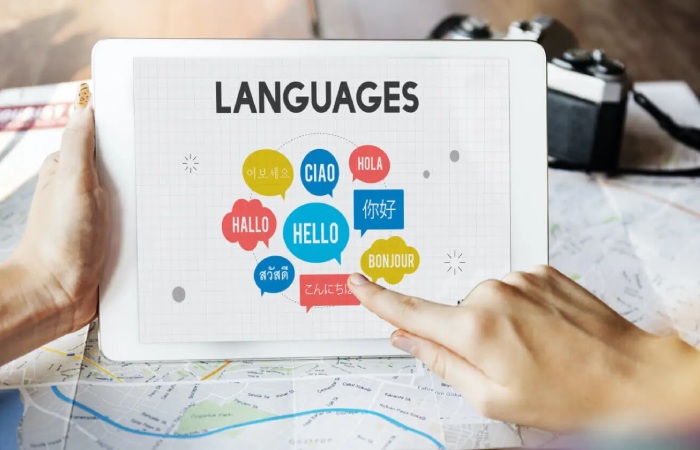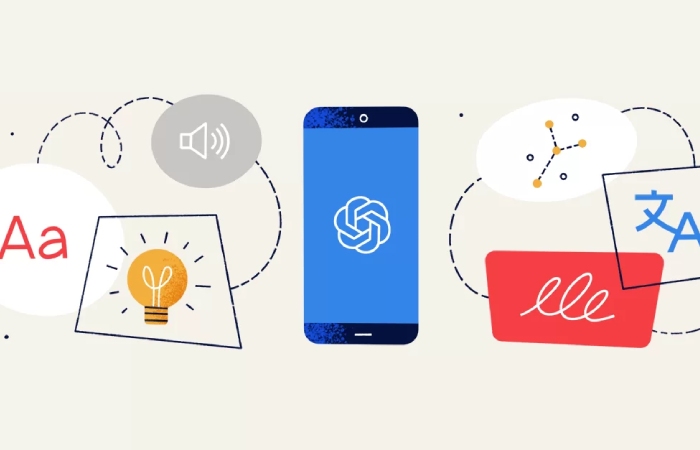We live in an increasingly connected world, and there is no shortage of multilingual apps. With businesses expanding globally, creating apps suitable for many users has become necessary. However, as you will soon realize, a multilingual app is more than just a translation; it requires careful consideration of cultural differences, user preferences, and national laws. This is where a localization company comes in. A localization company enables brands to launch popular apps globally to retain and grow their user base while simplifying the complexities of retargeting apps in different languages and countries.
Why Multilingual App Development Matters

The app market is the largest business opportunity globally, with over 5 billion mobile users. But most users want to be able to access apps in their native language, especially if they need to make a purchase, contact support, or access app features. Over 70% of users will use the app in their native language, so app localization is not optional but mandatory.
Multilingual app development needs to be well-planned. It is not just a matter of translation but a culturally native user experience. Currency format and date display, language, appearance, and behavior must be customized to meet users’ requirements in each country. This is where localization companies excel, and their skills, tools, and techniques help make multilingual app development easy and efficient.
How Localization Companies Streamline Multilingual App Development

A localization company has all the tools and exceptional services to translate apps into multiple languages and cultures. Here’s how they do it:
Expertise in Linguistic and Cultural Nuances
Language translation and cultural adaptation are skills that localization companies provide. They don’t just translate the language; they ensure that the app’s tone, design, and context reflect what people in each market want. This includes adjusting idioms, metaphors, and cultural references to ensure that there is no confusion and that the message reads as if it were written locally for each reader.
For example, a humorous voice that sounds great in the United States can be modified to sound good in Japan, where something more serious may be needed. Localization companies have localized linguists who can handle these details and adapt according to these requirements so that the app is written in the user’s language and culturally appropriate.
Employing Cutting-Edge Translation Technology
The best thing about working with a localization company is access to the latest translation technologies. Many localization companies already use AI-based machine translations, such as neural machine translation, which translates quickly and correctly so that human translators can edit and check later. This method allows you to complete the job faster and with lower quality.
Localization companies also use translation management systems (TMS) to automate processes, track translations, and maintain consistency across content. TMS allows localization teams to store and access translation memories, glossaries, and terminology databases that ensure common technical words and terms are translated throughout the application. Not only does this save time. But it also maintains the brand voice across multiple languages.
Testing for a Seamless User Experience
Testing is an integral part of developing any multilingual app. If it is perfect in one language but poorly designed and unusable in another language, then that app will not make much sense in the other language. For example, we need a mirror layout when German or Russian text expands. Breaking the interface layout, and when the language is written from right to left, like in Arabic or Hebrew. Localization companies conduct extensive linguistic, functional, and visual challenges to ensure the app works smoothly and intuitively in all languages.
Linguistic testing checks translations’ accuracy and fluency, meaning, and readability. Functional testing tests whether localized content works well with the app’s functionality. While visual testing tests whether layouts, buttons, and menus are formatted correctly. Localization companies carry out such testing, which prevents issues that could compromise user experience and reduce engagement.
Integrating with Multilingual Content Management Systems (CMS)
Content in a multilingual CMS needs to be edited in different languages. Multilingual and multi-language CMS platforms that localization companies often use make it easy to update content without manual changes. CMS integration means that when app content is updated (a new feature or product description), it is immediately applied to all local app copies to keep it consistent and up-to-date.
This integration benefits apps that need to be updated frequently or whose content changes, such as e-commerce or news apps. With the right localization company that understands CMS integration, companies can achieve a consistent user experience without making the same investment for each language version.
Leveraging Data to Personalize Localization Efforts
Most localization companies use users’ data to tailor content to specific audiences. Localization companies can deliver personalized app experiences in each market based on customer interest and behavior data. For example, they can see which features are used most in specific markets and prioritize them in the app design.
The data can tell you how people interact with local content, suggesting ideas for improvements or updates. If, for example, users in one market are impressed with specific photos or product descriptions. Localization companies can replicate the results in similar markets to make the app work better in all of them.
The Benefits of Working with a Localization Company for Multilingual App Development

Localization companies have many benefits for a business if they want to implement multilingual apps:
- Faster time to market – Localization companies are accelerating onboarding so they can quickly expand across the globe.
- Improved user experience – Through culturally relevant content and usability testing, localization companies ensure that all users in all countries are catered to.
- Consistency across platforms – Localization companies like the ones we work with for TMS and CMS integration ensure that brand voice and design are consistent across all languages.
- Localization scale – As businesses expand into new markets, localization companies can scale and adapt content to other languages or regions without impacting the app.
- Increased ROI – By engaging with more people and delivering an authentic experience, a well-localized app will have a higher chance of user usage and retention, which means a higher ROI.
Conclusion: Unlocking Global Reach with Localization Expertise
A multilingual app is an excellent strategy for a global company with an Internet-dependent e-commerce platform. However, adapting an app to various people’s linguistic, cultural, and functional needs can sometimes be challenging. A localization company has the experience, equipment. And techniques to automate this process so that multilingual apps deliver a simple, culturally relevant user experience.
Organizations can open new markets by partnering with a localization company, increase brand awareness, and deliver value to customers worldwide. We live in a world of mobile customers and global growth, and the benefits of localization for app development professionals cannot be underestimated. Multilingual app localization is reliable and essential for businesses that want to leave a lasting impression on the world.
Also Read: How to Remove Watermark from Photo: A Simple Guide with DeWatermark.AI

